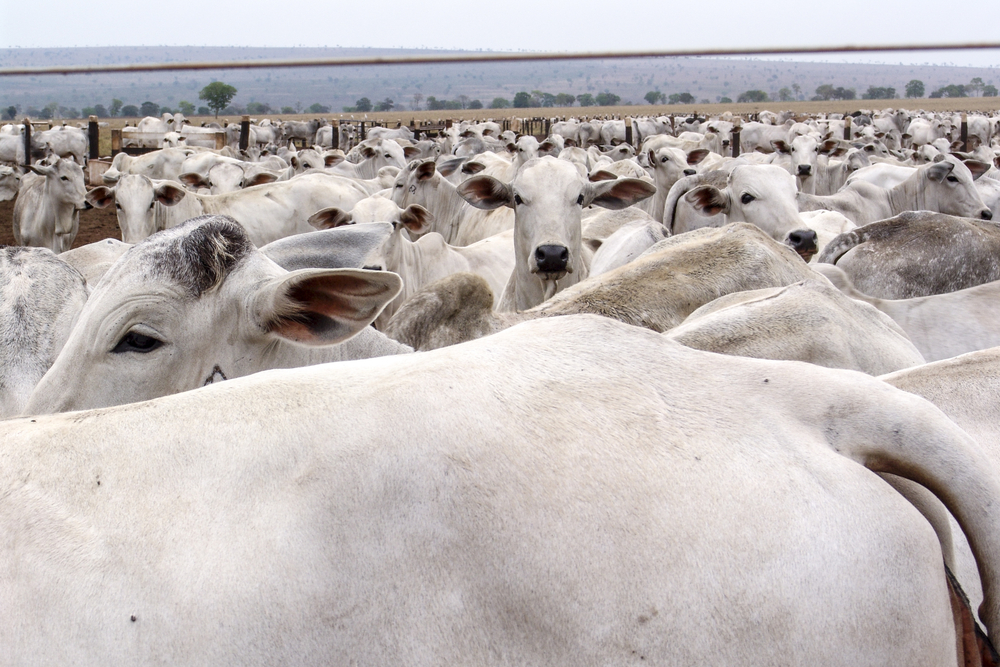Marfrig, the world’s second-largest beef producer and Brazil’s second-biggest food-processing company, has kickstarted a pilot project to reduce cattle belching.
The company will try to reduce its methane emissions by giving to around 350 cattle heads in the fattening phase a biochemical compound called Silvair. Produced by Cargill, Silvair is capable of collecting part of the hydrogen generated in rumination, combining it with carbon. As a result, methane production during enteric fermentation – which causes the cattle to burp – is replaced by the generation of ammonia, which has no impact on the atmosphere.
Methane, is naturally produced by cattle during digestion, has more than 80 times the warming power of carbon dioxide in the first 20 years after it reaches the atmosphere. Even though CO2 has a longer-lasting effect, methane sets the pace for warming in the short term.
As we explained in our Brazil Daily newsletter earlier this week, the country is one of the world’s biggest methane emitters, with most of it coming from agriculture — particularly from the digestion of Brazil’s cattle herd, the world’s largest.
During the COP26 climate conference in Glasgow last year, Brazil caved to international pressure and reluctantly signed...


 Search
Search






































